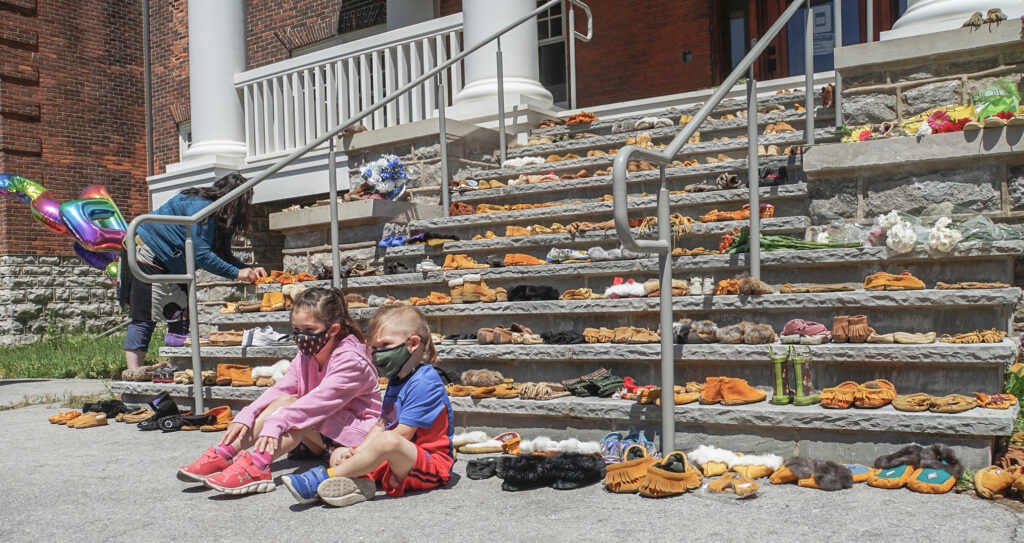
The Metis Nation of Ontario is asking for recognition of Metis survivors of residential schools as the country prepares to mark the second annual National Day of Truth and Reconciliation on Sept. 30.
The MNO says due to incomplete records, conflicting regulations and inaccurate status accounts, Métis peoples have regularly been omitted from the Residential School narrative and that it is impossible to know exactly how many Métis children attended residential schools.
There are several points to consider when reflecting on this history, including:
-it is historic fact that Métis children attended residential schools.
-even during periods when the Federal Government sought to ban Métis children from residential schools, church leaders continued to recruit Métis students.
-provincial governments and school boards were often unwilling to build schools in Métis communities or allow them to attend public schools, resulting in many Métis children being sent to these institutions as a last resort for an education.
-from the 1950s onwards, many Métis children attended residential schools that were operated by provincial governments in northern and remote areas.
-the Federal Government’s position on accepting Métis students was caught between an unwillingness to pay for education and a fear that if they didn’t attend these schools, they would never be assimilated. As a result, students would often go undocumented.
According to the Canadian Encyclopedia, governments and churches debated about whether Metis children should be permitted to attend residential schools.
Admission and discharge of Metis students was influenced by the location and religious denomination of the school, and whether parents could contribute tuition funds or work in place of funds.
Metis survivors have shared accounts of feeling like outsiders in the residential school experience.
When the historic Indian Residential School Settlement Agreement was announced in 2005, it was limited to federally funded schools and many Metis survivors did not receive compensation under the settlement.
Many Metis people also said they felt like outsiders in the Truth and Reconciliation hearings that took place from 2008 to 2015, although some did participate and provide input on their experiences.
The TRC noted, based on accounts from Metis survivors, that they felt excluded and even discriminated against by other residential school students.
A few books have been written to bring attention to the Metis experience in residential schools.
An exhibition was also launched, called Forgotten: the Metis Residential School Experience, created by the Legacy of Hope Foundation, which works to promote healing and reconciliation in Canada.
The exhibition, “explores Metis identity, Metis experience of residential schools and cultural reclamation and healing” and “gives voice to the experiences of the many Metis children who were forced to attend Indian Residential Schools.”






